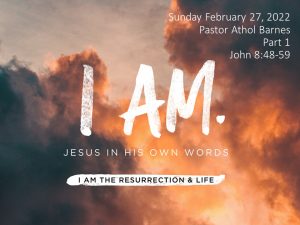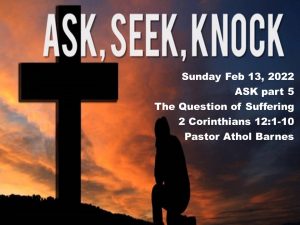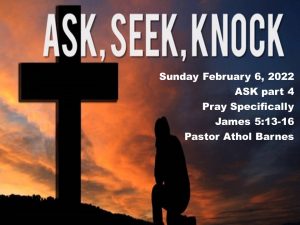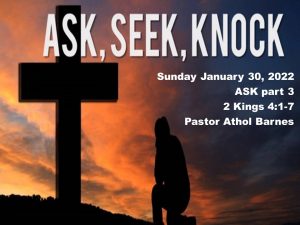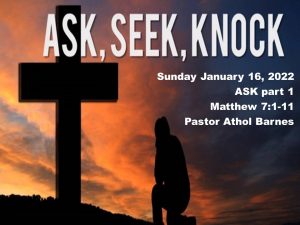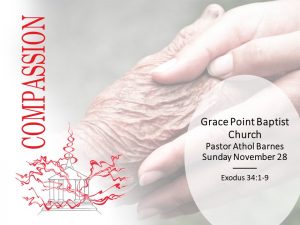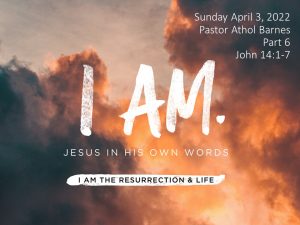

We live in a time of fear and uncertainty, and the Bible is filled with relatable accounts of ordinary people wrestling with doubt and fear. The disciples of Jesus were thrown into confusion and doubt as Jesus began to explain to them what was going to happen as they celebrated the Passover meal. A night of celebration turned into a night of uncertainty and then terror as Jesus was arrested.
However, in chapter 14 Jesus begins by encouraging the disciples saying, “Do not let your hearts be troubled”. How would they do this? Jesus continued in the rest of verse 1, “…you believe in God; believe also in me.” In other words, “trust me, like you trust God.”
Jesus continues to build their faith as he says in verse 6, “…I am the way, and the truth, and the life. No one comes to the Father except through me.”
Jesus is clear that he is the only way. This is not widely accepted today, even in many so-called Christian circles. But Jesus is the only Son of God, who rose from the dead. Jesus Christ is the only way to be restored to a right relationship with God, the creator of Heaven and Earth. Wealth, fame, achievements, and good works are not good enough to bridge the divide caused by sin. The only thing that matters is our relationship with the living savior Jesus Christ (See Acts 4:12).
Jesus comforts his disciples by saying, “I am the way, the truth and life”.
- Jesus is the way
Sadly, many people today are on the wrong path, and the result is deadly (See Proverbs 14:12). Jesus does not simply teach about the way to go; Jesus is the way.
We all get lost when we think that our way is the right way. Our pride causes us to persist along a path that ends up destroying us.
We are driven by various appetites, ambition, fear, desire for recognition and instead of changing direction when we realize our error, we push harder thinking it will ultimately lead to success. But ultimately, if it is not the perfect path that Jesus has for you, it will only cause pain. Jesus offers us a better way in Matthew 11:28-30. Jesus is the way to peace, freedom from addictions and a life of purpose.
Are you living a life that follows Jesus as the way? Or are you making your own way, hoping for the best.
- Jesus is the truth
Truth is a regularly debated word in our culture. Is truth fixed? Many in our culture will argue that there is no such thing as objective truth, but by making that statement, they are making an objective statement. Daily we are inundated with information that claims to be factual, but is it really?
Jesus is truth and it leads us to peace (see Isaiah 26:3). What is your mind fixed on? What consumes your thoughts? Paul encourages us to, “Take every thought captive and make it obedient to Christ” (2 Corinthians 10:5).
We do this by aligning our thoughts with the Word of God and meditating on the Truth (see Philippians 4:8). The truth isn’t an opinion, truth is a person, and his name is Jesus. And truth is found in his Word, which can set us free from the lies that we believe.
In the building industry, a true wall is one that follows a plumbline. A true line does not deviate from its path. Jesus is true in that he is the exact representation of God the Father (see John 14:9). Not only does Jesus reveal the truth of God to us, he displays the nature and Character of God.
As Christians we are to be people of the truth, people so aligned with Jesus that we are known for our integrity and honesty, even when it costs (see Ephesians 4:25).
- Jesus is the life.
Unless Jesus returns, we will all experience a physical death. However, through Jesus we no longer have to fear death, because he defeated the grave.
But there are other deaths that we experience. Sometimes we experience the death of hope or dreams that we held. Even though we pray and cry out to God, we don’t see the miracle we are praying for.
Some are dying because they have allowed the enemy to steal their joy, killing their peace and contentment.
There are some whose marriage seems like it’s dying. Some see the death of a close relationship; Satan has slowly eaten away at the relationship and now it is dying.
But Jesus came to give us life, which means there’s nothing that’s dead or seems dead that he can’t bring back to life because the same power that raised Jesus from the dead lives in you (see 1 Peter 1:3).
The Bible is a book all about life; in the Garden of Eden, we read about the tree of life, in the book of revelation we read about the river of the water of life flowing from the throne of God. And between those two books, the other 64 books are the history of life. Unfortunately, today we have Christians who do not fully realize this life. The degree to which we as the church are fully alive in Christ, determines our effectiveness of bringing life and salvation to our community. Being led by the spirit we will be truly alive in Christ, and as a result, our community will be changed for the glory of God.
Are you truly alive in Christ? Or are you going through life just getting by, but numbed by the cares and entertainment of the world?
Thomas A Kempis wrote, “without the way there is no going; without the truth there is no knowing; without the life there is no living”. Are you truly living?
Unfortunately, many people make the mental decision to agree with the gospel message, but then slip back into a state of passivity. What a waste of a life that has unlimited potential in Christ! Sadly, many people are trying so hard to stay alive, yet they are spiritually dead. Don’t be so in love with this world and the temporary things of this world that you slowly stop living for God.

